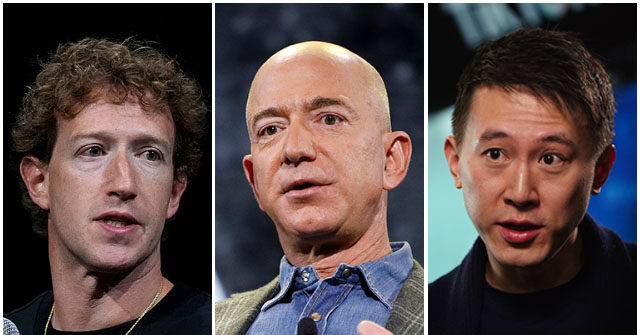As preparations for President-elect Donald Trump’s administration began, the allure of Mar-a-Lago became evident as a gathering spot for some of America’s most influential corporate leaders. Reports from the Financial Times detailed how a range of high-profile CEOs – including Ted Sarandos of Netflix, Jeff Bezos from Amazon, Shou Zi Chew of TikTok, Masayoshi Son representing SoftBank, and Mark Zuckerberg of Facebook – made pilgrimages to pay homage to Trump. These meetings illustrated the business community’s response to Trump’s election, highlighting a desire to engage constructively with an incoming president who had promised significant economic and regulatory reforms that would shape various industries. This culminated in a widespread effort among executives to “make good” with Trump after a tumultuous first term marked by controversy and heightened scrutiny from the business sector.
The backdrop of these meetings was complicated, as many of these CEOs had previously opposed Trump, with some even supporting Joe Biden during the last election campaign. This shift in narrative encapsulated a larger tension; while there were risks involved in aligning with Trump due to his unpredictable nature and controversial policies, the business landscape was evolving rapidly. Companies saw that avoiding engagement could lead to missed opportunities for favorable negotiations regarding policy and economic strategy. A Washington lobbyist pointedly remarked that it took significant fortitude for CEOs, many of whom identify with more liberal ideologies, to reach out to Trump, implying that they felt compelled to act out of necessity rather than genuine alignment with his political views.
Inside Trump’s inner circle, the frequent meetings were framed as a demonstration of confidence in the president-elect’s capabilities to foster a business-friendly climate. The executives who previously chose to distance themselves from Trump’s administration, particularly after the events of January 6, 2021, recognized the importance of re-establishing relationships with the incoming administration. Given Trump’s track record as a dealmaker, some executives sensed an opportunity to leverage their influence and potentially sway policy discussions toward a more favorable outcome for their industries.
Motivations behind the executives’ meetings varied markedly. For instance, Shou Zi Chew of TikTok was arguably driven by an immediate tactical concern: to safeguard his platform from a looming ban in the United States. In contrast, leaders from major tech companies like Tim Cook from Apple, Sundar Pichai of Google, and Zuckerberg were likely primarily motivated by a desire for a more favorable regulatory environment, paving the way for their operations to thrive without the encumbrance of harsh regulatory scrutiny. These variable interests underscored the delicate balancing act that corporate leaders had to perform in navigating their political affiliations while advocating for the strategic needs of their companies.
Despite their attempts at collaboration, deep-seated concerns about Trump’s economic policies remained prevalent within Corporate America. Many were cautious about Trump’s proposals for broad tariffs and mass deportations, as well as potential rollbacks of manufacturing subsidies that could adversely affect their operations. Nonetheless, there was a growing recognition that working with Trump might offer a better chance for CEOs to shape outcomes in their favor than dissenting publicly. A senior adviser to Trump remarked that many CEOs were signaling their willingness to partner with the upcoming administration, an indicator that they wished to find common ground despite their previous disagreements.
The juxtaposition of corporate leaders bending to political winds indicates a significant shift in how businesses engage with governance in the United States. As figures like Wendell Husebo from Breitbart News noted, the dynamic demonstrates a critical moment in which corporate interests were ready to engage with an administration whose policies might directly challenge their principles. Overall, the emergent pattern highlights a wider trend, wherein the necessity of economic prosperity prompts collective business engagement, often eclipsing longstanding political ideologies in favor of pragmatic cooperation. The meetings at Mar-a-Lago mark a pivotal moment not just for the involved parties but also for the broader corporate landscape, setting the stage for the intricate entwining of business and politics in the years to come.

